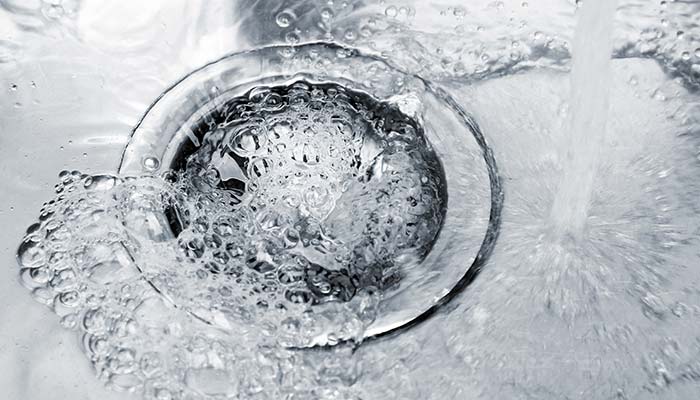
Any plumber knows homeowners love their garbage disposals – they’re a useful tool for easily cleaning up kitchen waste! What many homeowners fail to realize is that not everything can be rinsed down the drain into the garbage disposal. Keep certain items out of your garbage disposal to prevent urgent repair calls to your Ann Arbor plumber.
Ann Arbor Plumber Advice: What to Keep Out of Your Garbage Disposal
The following items should never be put down your garbage disposal – instead, put them in the trash can and protect your garbage disposal and plumbing system from damage. Any of these causes the need for a professional plumber and sometimes even a disposal replacement.
Bones
Bones from meat items should never be sent down the garbage disposal. The blades will not chop them up and they end up just spinning around in the canister. They won’t be cut into small pieces, therefore if they manage to wash down the drain, bones are a major risk for a pipe obstruction.
Fibrous Veggies
Vegetables such as asparagus, celery, and corn husks have long, fibrous strings that wreak havoc on your garbage disposal. These strings wind around the blades and motor, jamming the motor and blocking other items from washing down the drain.
Grease, Oils and Fats
When warm, these items are liquid and appear to rinse down the drain easily. As soon as it cools, it becomes solid. These items in their solid forms accumulate in your drains and pipes, where they cause a blockage.
Plus, grease, fat, and oil create a greasy film on the teeth of the garbage disposal, which reduces their shredding power.
Eggshells
Many believe putting eggshells down a garbage disposal is a DIY fix for sharpening its blades, but eggshells cause more harm than good. The membrane attached to the outer shell act in the same manner fibrous veggie strands.
They wrap around the motor and components which causes damage. As the shell shreds, it becomes a sand-like material and easily clogs your pipes.
Coffee Grounds
While they wash down easily, just like the eggshells, their consistency creates the potential for drain and pipe clogs. The sediment accumulates rather than washes through your plumbing system.
Fruit Pits
Fruit pits are extremely hard and difficult for even powerful garbage disposal blades to chop. The pit banging around in your garbage disposal canister often damages the blades and other components. Don’t risk it, even if you have a powerful disposal motor.
Potato Peels
Potato peels are very starchy and create a soup-like sludge in your garbage disposal because they don’t wash down or chop up easily. This also applies to beans and other starchy vegetables. Keep them out of your garbage disposal as well.
Pasta and Rice
Pasta and rice expand when they absorb water. Did you know the absorption process continues even after they are cooked? These items expand in your drain lines where they lead to clogs.
Non-Food Items
It should go without saying, but non-food items should not be sent down the garbage disposal. It’s easy for common kitchen items such as twist ties and rubber bands to be thrown in the sink with food items, but special care should be taken to remove them before they reach the drain.
Conclusion: Garbage Disposals Are Not One-Size-Fits-All – Call Hoover for Plumber Pros
Review the list of starchy and fibrous foods and other common garbage disposals enemies, especially if you have teenagers or younger kitchen helpers. You’ll save yourself a big headache.
Hoover Electric, Plumbing, Heating & Cooling urges you to take this Ann Arbor plumber advice to keep your garbage disposal and plumbing system in good working order. If you do experience a problem with your garbage disposal, don’t worry! Contact us right away for quick, reliable plumbing repairs.


